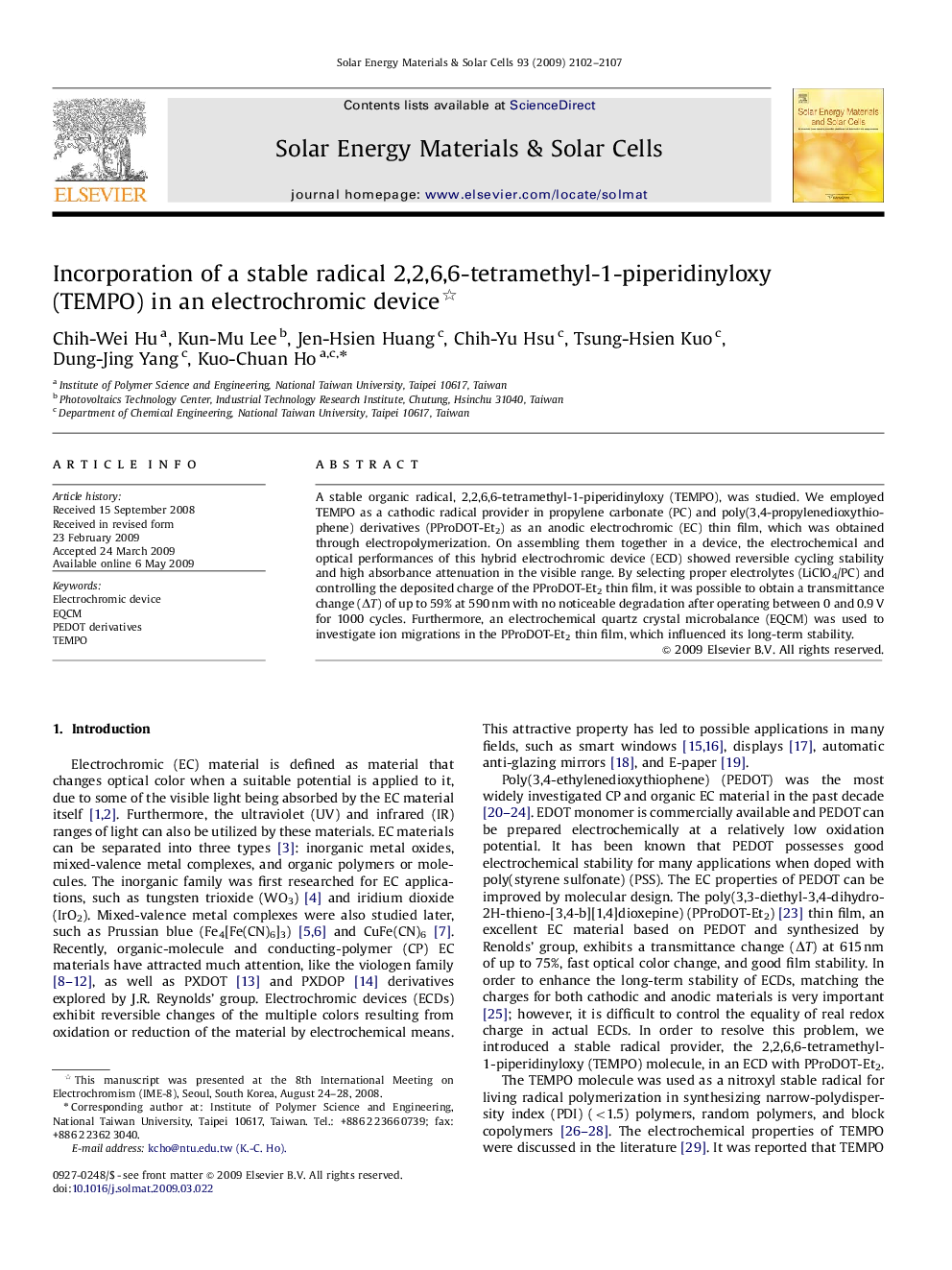| کد مقاله | کد نشریه | سال انتشار | مقاله انگلیسی | نسخه تمام متن |
|---|---|---|---|---|
| 80407 | 49384 | 2009 | 6 صفحه PDF | دانلود رایگان |

A stable organic radical, 2,2,6,6-tetramethyl-1-piperidinyloxy (TEMPO), was studied. We employed TEMPO as a cathodic radical provider in propylene carbonate (PC) and poly(3,4-propylenedioxythiophene) derivatives (PProDOT-Et2) as an anodic electrochromic (EC) thin film, which was obtained through electropolymerization. On assembling them together in a device, the electrochemical and optical performances of this hybrid electrochromic device (ECD) showed reversible cycling stability and high absorbance attenuation in the visible range. By selecting proper electrolytes (LiClO4/PC) and controlling the deposited charge of the PProDOT-Et2 thin film, it was possible to obtain a transmittance change (ΔT) of up to 59% at 590 nm with no noticeable degradation after operating between 0 and 0.9 V for 1000 cycles. Furthermore, an electrochemical quartz crystal microbalance (EQCM) was used to investigate ion migrations in the PProDOT-Et2 thin film, which influenced its long-term stability.
Journal: Solar Energy Materials and Solar Cells - Volume 93, Issue 12, December 2009, Pages 2102–2107